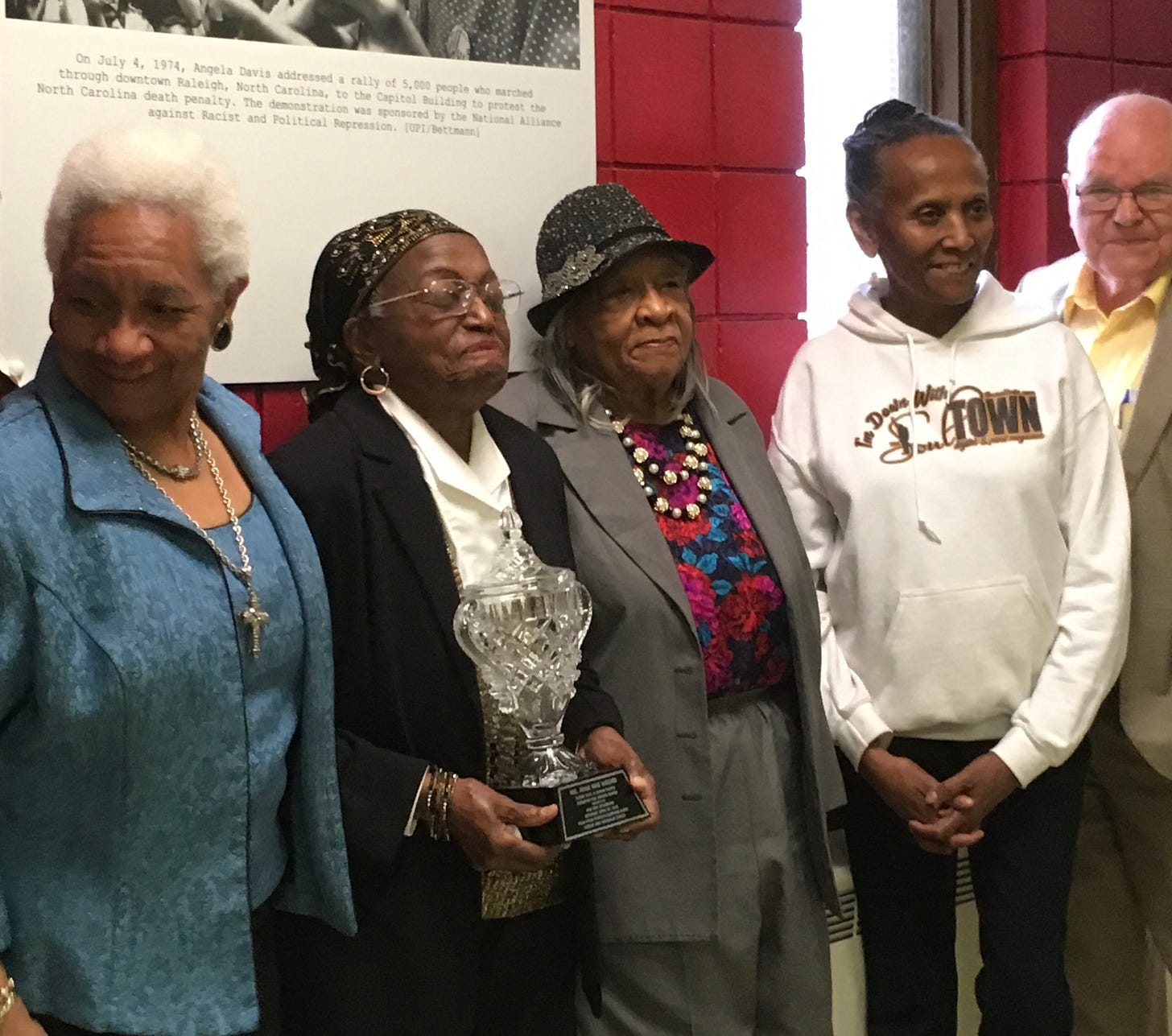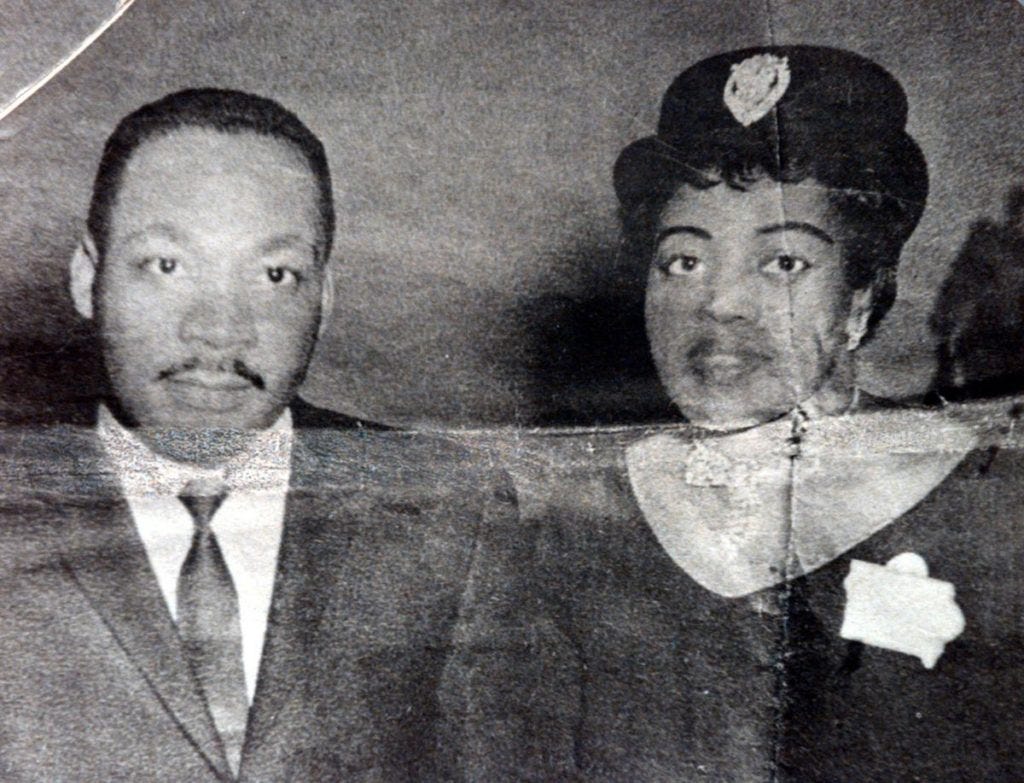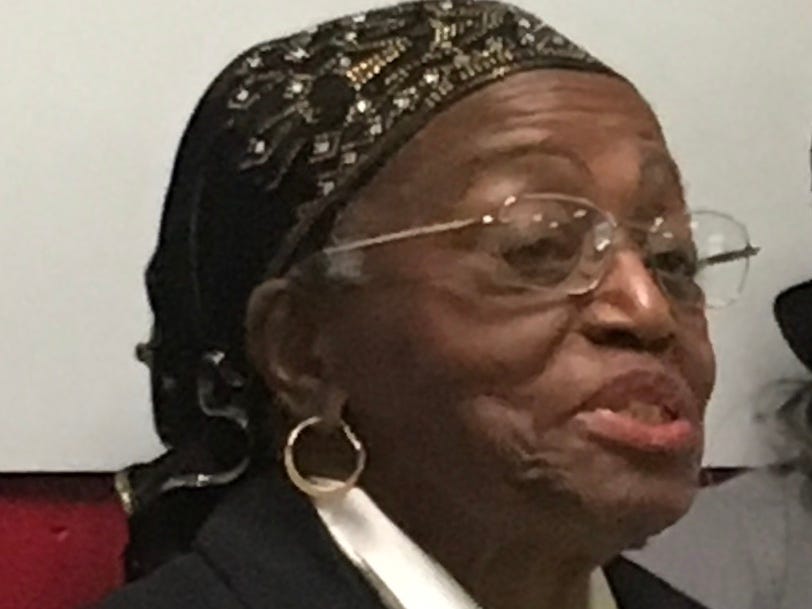Another milestone for Waterloo civil rights icon
Anna Mae Weems still has her 'eyes on the prize'
The woman who brought the Rev. Martin Luther King Jr. to Waterloo in 1959 had better prepare her pipes to blow out a bunch of candles.
Longtime Waterloo civil rights leader Anna Mae Weems will turn 97 years old on Feb. 6.
Whether on the production floor of The Rath Packing Co. in the 1950s, being rousted frome a racially segregated lunch counter in Oklahoma in the early ‘60s, or marching on the streets of Memphis, Tenn. with striking sanitation workers in 1968 before Dr. King’s assassination, Anna Mae was all about what the late Congressman John Lewis would have called causing “good trouble” — in order to make her community, state and country live up to its aspiration of liberty and justice for all.

In Waterloo, she has gone from being reviled by some to revered — from a town troublemaker to a community treasure. In 2019 she was recognized for a lifetime of work by the Waterloo Human Rights Commission.
And that may say more about Waterloo than Anna Mae Weems. Because her message and her mission has remained consistent over the decades. She grabbed her de-facto segregated hometown by the scruff of its neck and made it look into its soul.
She was not a witness to history, but a participant, locally and nationally.
She became active in United Packinghouse Workers of America Local 46, which represented employees at Rath, one of the city’s two largest employers. It was a racially integrated workforce and a racially integrated union offering a springboard for empowerment within Waterloo’s Black community. One of Local 46’s Black officials and a mentor to Weems, Russell R. Lasley, rose to become a vice president and national treasurer of the UPWA, which helped bankroll the Southern Christian Leadership Conference, headed by King.
It was through her UPWA involvement that Weems was invited to a Washington, D.C. prayer breakfast of labor representatives in the late 1950s, convened by then-Vice President Richard Nixon.
It was at the breakfast that Weems said she heard a dynamic young minister deliver the invocation, It was King. Subsequently, she invited him to come to Waterloo. He came in November 1959. He had only just begun to make a name for himself as a minister in Montgomery, Ala., where he was a key figure in the city bus boycott there.

But, coming from the South, he was unprepared for Iowa weather in November. Weems took King to Palace Clothiers in Waterloo where he was fitted with weather-appropriate attire by the proprietor, Burton Field. King spoke at Waterloo West High School and the State College of Iowa in Cedar Falls, now the University of Northern Iowa.
Over the years, Weems was called upon by the UPWA to participate in actions of social justice and of civil disobedience. She raised donations and support for the families of four Black girls killed in a Birmingham, Ala. church bombing in 1963.
She was jailed for a one-woman sit-in at a whites-only Oklahoma City lunch counter in the early 1960s. She's organized rallies against employment discrimination on the streets of Waterloo.
And in 1968, she participated in the first day of the sanitation workers strike in Memphis -- where King would be assassinated a few weeks later.
Locally in the 1970s and 1980s, Weems brought the Rev. C.T. Vivian – a King associate and SCLC organizer featured in the 1987 award-winning PBS documentary “Eyes On the Prize” – to Waterloo to conduct community-wide Urban Potential race relations training through the Waterloo Chamber of Commerce.
It was an eye-opening experience for many white community leaders. Vivian “just brought up so many things that we didn’t think of, that you had no idea of if you weren’t Black,” recalled Bob Brown, a long time Waterloo City Council member. Vivian’s foundation, based in Atlanta, still offers that training.
Anna Mae Weems was one of the Waterloo-Cedar Falls Courier’s “Eight over 80” honorees in 2015, recognizing outstanding achievement by senior citizens.

At that time, she said some people "identify me with problems. And I can understand that. In ways, to me, it's a compliment. Because I recognized there was a problem, and I try to solve it." And, she noted she was “blessed” to see some division in her community replaced with inclusion.
Contacted this past week on MLK Day she said she and her loved ones “continue to be blessed daily.’
But she added, “On this day, I am reminded there is still much work to do ahead of us all.”
Ever with her eyes on the prize.
Iowa Writers’ Collaborative Columnists
Laura Belin: Iowa Politics with Laura Belin, Windsor Heights
Doug Burns: The Iowa Mercury, Carroll
Dave Busiek: Dave Busiek on Media, Des Moines
Art Cullen: Art Cullen’s Notebook, Storm Lake
Suzanna de Baca Dispatches from the Heartland, Huxley
Debra Engle: A Whole New World, Madison County
Julie Gammack: Julie Gammack’s Iowa Potluck, Des Moines and Okoboji
Joe Geha: Fern and Joe, Ames
Jody Gifford: Benign Inspiration, West Des Moines
Beth Hoffman: In the Dirt, Lovilla
Dana James: New Black Iowa, Des Moines
Pat Kinney: View from Cedar Valley, Waterloo
Fern Kupfer: Fern and Joe, Ames
Robert Leonard: Deep Midwest: Politics and Culture, Bussey
Tar Macias: Hola Iowa, Iowa
Kurt Meyer, Showing Up, St. Ansgar
Kyle Munson, Kyle Munson’s Main Street, Des Moines
Jane Nguyen, The Asian Iowan, West Des Moines
John Naughton: My Life, in Color, Des Moines
Chuck Offenburger: Iowa Boy Chuck Offenburger, Jefferson and Des Moines
Barry Piatt: Piatt on Politic Behind the Curtain, Washington, D.C.
Mary Swander: Mary Swander’s Buggy Land, Kalona
Mary Swander: Mary Swander’s Emerging Voices, Kalona
Cheryl Tevis: Unfinished Business, Boone County
Ed Tibbetts: Along the Mississippi, Davenport
Teresa Zilk: Talking Good, Des Moines
To receive a weekly roundup of all Iowa Writers’ Collaborative columnists, sign up here (free): ROUNDUP COLUMN
We are proud to have an alliance with Iowa Capital Dispatch.




